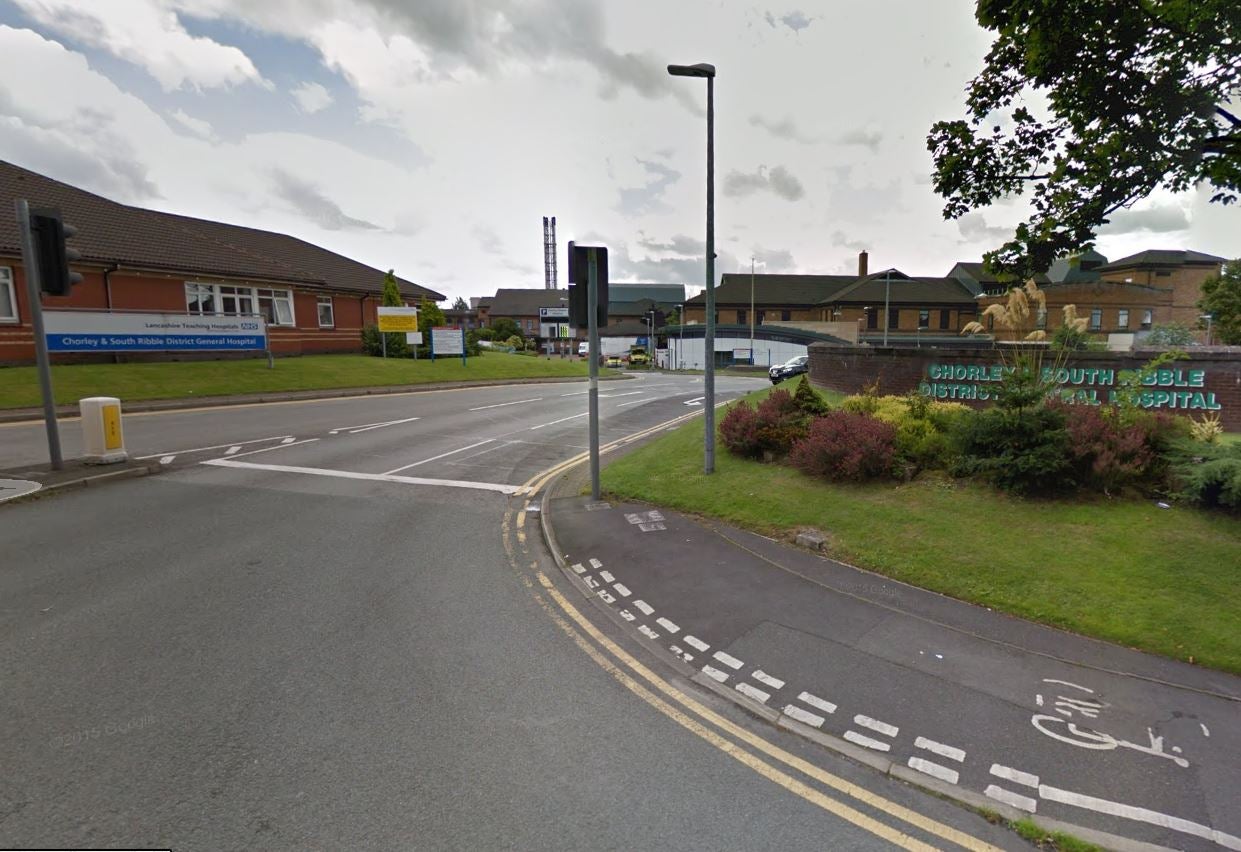NHS hospital forced to shut down A&E department due to staff shortages
'We simply cannot staff the rotas, and it is an unacceptable risk to patient safety to attempt to provide an emergency department service with no doctors available to see people,' senior doctor says

An NHS hospital has been forced to stop running its A&E department, warning that staff shortages left it with no other safe option.
Chorley Hospital in Lancashire announced that the drastic measure would take effect from next week. The A&E will be temporarily downgraded to an urgent care centre, meaning it will close at night and will not be able to take the most seriously ill patients until further notice.
In a statement, Lancashire Teaching Hospitals NHS Foundation Trust, which runs the hospital, said there “no other safe options for delivering care”.
The trust blamed a national shortage of emergency doctors, an insufficient number of junior doctors being assigned to the hospital, and difficulties arising from a recent Department of Health-imposed cap on spending on temporary agency staff.
It said it had just eight of the 14 middle-grade doctors needed to fill its rotas. While most patients using the A&E could be safely cared for at the urgent care centre, the trust said that, from Monday, ambulances transporting patients with more serious conditions would be diverted directly to the larger Royal Preston Hospital, around 10 miles away.
Consultant doctors had been working extra shifts to cover the rota, but the trust said this was not sustainable. The national cap on agency spending, imposed in November in an attempt to reduce growing NHS hospital deficits, had recently been suspended at the hospital, but the trust said it had still “not been able to secure the number of staff we need to continue to safely staff the rotas”.
Professor Mark Pugh, consultant anaesthetist and medical director of Lancashire Teaching Hospitals NHS Foundation Trust, said: “Changing the current service provided at Chorley is a direct response to the immediate and significant staffing problem.
"We simply cannot staff the rotas, and it is an unacceptable risk to patient safety to attempt to provide an emergency department service with no doctors available to see people.
"These measures are temporary, and we will continue to do everything possible to secure all the staff we need and reinstate the emergency department service at Chorley.”
Dr Gora Bangi, chair of Chorley & South Ribble Clinical Commissioning Group, said: “After reviewing the clinical and service recommendations of Lancashire teaching hospitals, it is clear that this is the only safe and viable option available to maintain safe care for patients given the current staffing challenge. However the system resilience group will review the situation on a week by week basis, with a view to reinstating the emergency department service as soon as that’s possible.”
In a statement, national regulator NHS Improvement, said: "It is clear that locally, recruitment of a particular speciality of accident and emergency staff has proved very challenging at the same time as demand for services has jumped by around 14 per cent compared with previous years.
"While the majority of patients are still being seen at Chorley, more seriously ill people will need to be seen at the trust's other A&E facility, in Preston. "
"An ambulance will be stationed at Chorley Hospital so life-threatening cases can be quickly transferred to Preston, although 41 per cent of patients attending Chorley A&E don't have any diagnostic tests or treatment."
The Royal College of Emergency Medicine said the decision was “a reflection” of an NHS under “enormous pressure”.
“Fragile systems put under great stress will fracture,” the college said in a statement. “If a department is already running on minimal staffing levels and further rota gaps appear it becomes impossible to maintain the service. The inability to recruit middle-grade doctors is due to a general shortage of emergency medicine doctors nationally.
“The situation has been exacerbated by the capping of agency recruitment and in the short term has proved to worsen the problems it seeks to solve.
"As a result of this forced closure, surrounding hospitals will come under even greater pressure creating a domino effect. Service reconfigurations based on crisis management are unlikely to be in the best interests of patients.”
Join our commenting forum
Join thought-provoking conversations, follow other Independent readers and see their replies
Comments